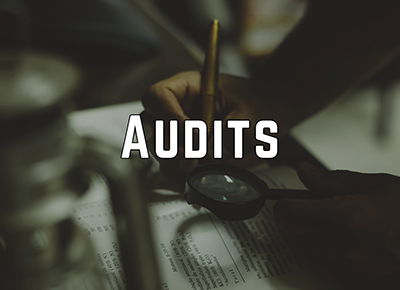Compliance Audit Enhancement Using Principles Of Lean Documents And Lean Configuration
🎤 José Mora | 📅 Recording Available | 🕒 90 Minutes
Description:
In today's rapidly evolving regulatory landscape, organizations across industries are under increasing pressure to ensure compliance with a multitude of laws, regulations, and industry standards. Compliance audits play a vital role in assessing an organization's adherence to these requirements, identifying potential risks, and implementing corrective measures.
Our upcoming webinar, "Compliance Audits Using Principles of Lean Documents and Lean Configuration," is designed to provide professionals with a deep understanding of the audit process, best practices, and strategies for effectively managing compliance obligations. Whether you're an auditor, compliance officer, or part of a company's governance team, this webinar offers invaluable insights to enhance your compliance program.
During this informative session, our expert speakers will delve into the key elements of a compliance audit and share practical tips to streamline your audit process. They will discuss the importance of establishing an audit framework tailored to your organization's specific compliance needs and outline the critical steps involved in planning, executing, and reporting on compliance audits.
Participants will gain knowledge on leveraging technology solutions to automate audit procedures, ensuring efficiency and accuracy in assessing compliance controls. Our speakers will explore emerging trends and innovative tools, such as data analytics and artificial intelligence, that can enhance audit effectiveness and enable proactive risk management.
Moreover, this webinar will highlight the significance of maintaining strong documentation practices and effective communication with stakeholders throughout the audit lifecycle. You'll learn how to establish robust internal controls, conduct comprehensive risk assessments, and develop remediation strategies to address audit findings efficiently.
Join us for the "Compliance Audits" webinar to equip yourself with the knowledge and tools necessary to navigate the complexities of compliance audits successfully. Our expert panelists will share their real-world experiences and provide practical guidance to help you stay ahead of regulatory requirements and safeguard your organization's integrity and reputation.
Don't miss this opportunity to gain valuable insights, network with industry peers, and enhance your compliance auditing skills. Register now to secure your spot in this transformative webinar that will empower you to master compliance audits and ensure a culture of compliance within your organization.
Why Should You Attend:
- Enhance your knowledge: Compliance auditing is a critical aspect of any organization's governance framework. By attending this webinar, you will gain a comprehensive understanding of compliance auditing principles, methodologies, and best practices. This knowledge will enable you to strengthen your compliance program and contribute to your organization's overall risk management strategy.
- Stay updated on regulatory requirements: The regulatory landscape is constantly evolving, with new laws, regulations, and industry standards being introduced regularly. By attending the webinar, you will stay up to date with the latest compliance requirements and understand how to align your organization's practices with these changes. This will help you avoid penalties, reputational damage, and legal liabilities.
- Learn from industry experts: The webinar will feature expert speakers with extensive experience in compliance auditing. They will share their practical insights, case studies, and real-world examples, providing you with valuable guidance and actionable tips. Learning from experienced professionals will enhance your skills and enable you to apply industry-leading practices within your organization.
- Streamline your audit process: Compliance audits can be complex and time-consuming. Attending the webinar will equip you with strategies and techniques to streamline your audit process, making it more efficient and effective. You will learn how to plan and execute audits, identify key risk areas, assess controls, and report on audit findings. These skills will help you conduct audits with confidence and achieve better results.
- Leverage technology for auditing: Technology plays a crucial role in modern compliance auditing. The webinar will explore the latest technological advancements, such as audit management software, data analytics, and artificial intelligence. You will learn how to leverage these tools to automate audit procedures, analyze large volumes of data, and identify potential compliance gaps. Adopting technology in your auditing processes will enhance accuracy, reduce manual effort, and improve overall audit outcomes.
- Compliance auditing is a systematic and independent assessment of an organization's adherence to regulatory requirements, internal policies, industry standards, and best practices. It involves reviewing and evaluating processes, controls, and documentation to ensure compliance with applicable laws and regulations.
- Compliance audits aim to identify areas of non-compliance, assess the effectiveness of controls, and provide recommendations for improvement. The process typically involves planning and scoping the audit, gathering evidence through testing and interviews, analyzing findings, and reporting the results to management and relevant stakeholders.
- Key areas covered in compliance audits may include data privacy, financial reporting, information security, anti-money laundering, environmental regulations, workplace safety, and more. The audit findings help organizations identify risks, strengthen controls, and demonstrate their commitment to regulatory compliance.
- By conducting regular compliance audits, organizations can proactively identify and mitigate potential compliance gaps, reduce legal and reputational risks, and foster a culture of compliance throughout the organization. Compliance auditing plays a vital role in ensuring ethical practices, safeguarding stakeholder interests, and maintaining the integrity and trust of the organization.
Areas Covered In The Session:
- Lean auditing techniques based on measurable deliverables
- Comparing with the traditional compliance audit
- Problem identification
- Reporting format
- Performance measurement
- Effective follow up and verification strategies
- How to immediately start implementing the methodology


